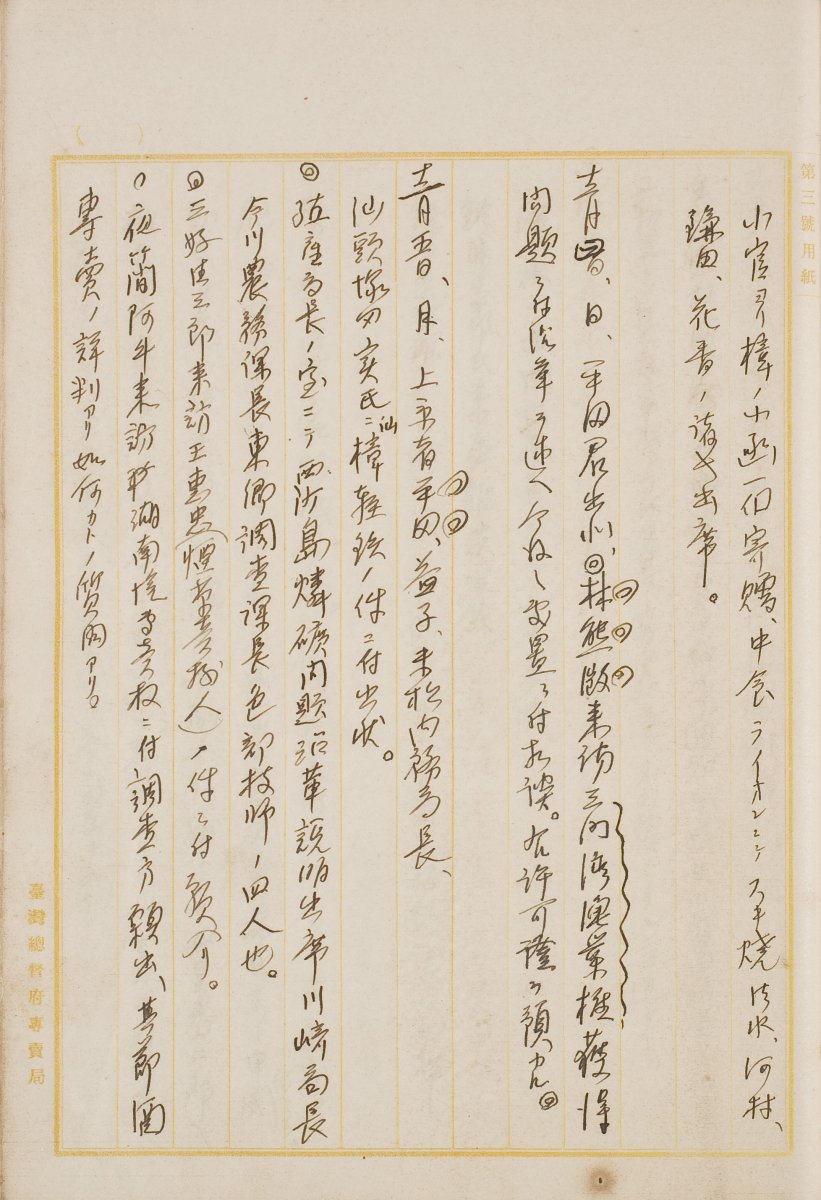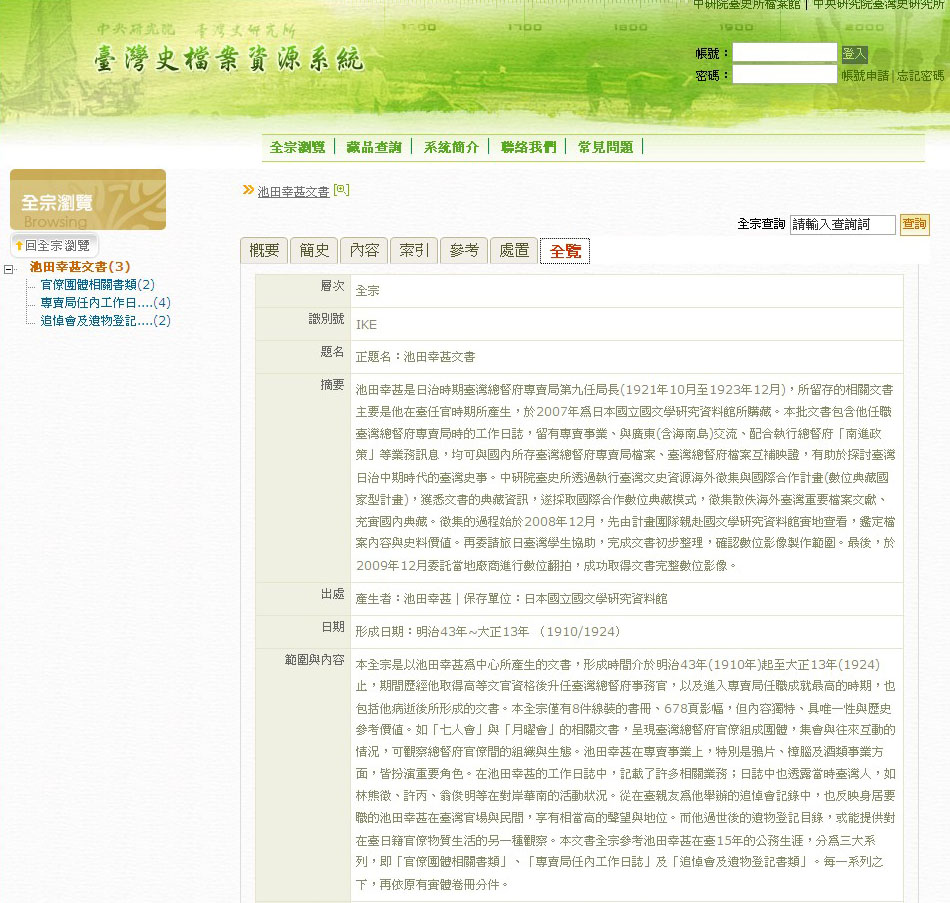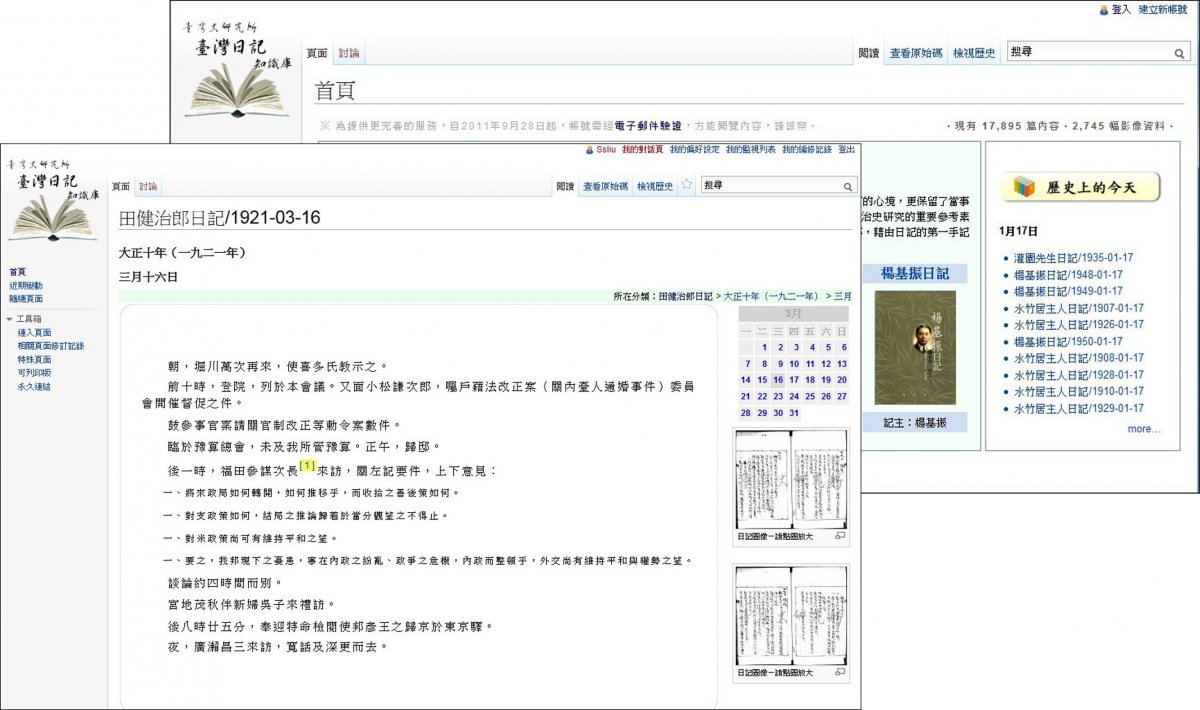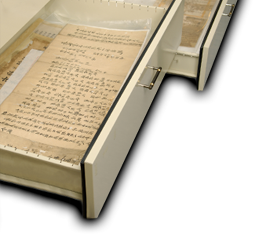|
After being acquired, Taiwan historical materials are then arranged to be posted on the Taiwan Archival Information System (TAIS) for free and open access. The materials are arranged in collections and subsequently into series and file with details on titles, abstracts, dates, scopes and contents, biography or history, and chronological tables for easy browsing by users. Ikeda Koujin Papers (池田幸甚) has been able to be accessed through TAIS. Ikeda Koujin Papers acquired from the National Institute of Japanese Literature in 2009 contain records of his social gatherings with colleagues, details of his memorial service, list of items left behind after his death, and his daily agendas at work, which are of supreme historical value. The National Institute of Japanese Literature is responsible for investigating, collecting, archiving and preserving Japan-related historical materials. Among its collections are personal papers scattered among the people and in the hands of former colonial government officials, such as Ikeda Koujin, director of the Monopoly Bureau, Taiwan Governor-General Office. Graduated from the Tokyo Imperial University, Ikeda Koujin had served for more than 15 years in the Japanese colonial government beginning from 1908. He joined the then Monopoly Bureau,Taiwan Governor-General Office in 1914 and became the director of the Bureau in 1921, the highest post in his public career. Ikeda Koujin not only excelled in his official job in monopoly undertakings, he was also an expert in China affairs and carried out vigorously the “Southeast-forward Policy”. His daily agendas offer details on execution of government policies and provide information on the business activities of Lin Xiongzheng (林熊徵), Xu Bing (許丙), and Hirada Sueji (平田末治) in the south China region.
 Dairies (1921-1923) of Ikeda Koujin contain an account of the visit of Hirada Sueji on December 4, 1921 and how Lin Xiongzheng acquired fishing rights at San-men Bay. The dairy of December 5 details the attendance at the meeting on settling the issue of phosphate mining at Paracel Islands.

In addition to acquisition of archives, digitization and value-added application of data are conducted through international collaboration. An example is the dairies of Den Kenjirō (田健治郎) (1855-1930), the Taiwan Governor-general of 1919-1923. During his term of office, Den Kenjirō carried out major reforms such as implementing an integrated education system that allowed Taiwanese to enroll in Japanese education institutions and restructuring the local administration system. With the authorization of his family in April 2010, Den Kenjirō’s detailed diaries are digitized and made available for public access at the Taiwan Diary Knowledge Bank .  |




